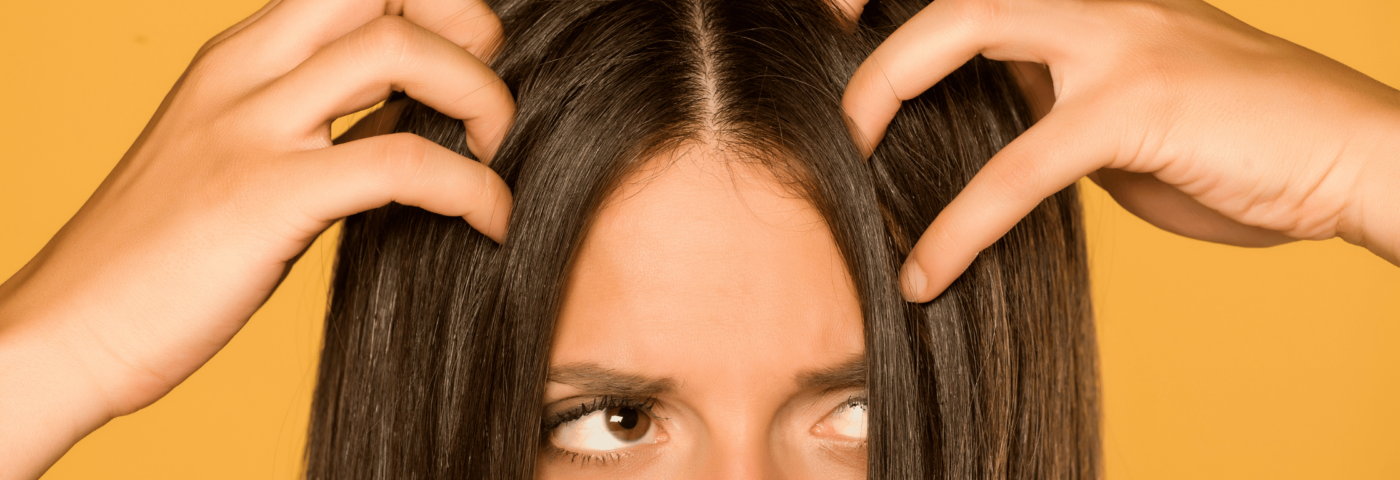The scalp is covered in skin, just like the rest of the body, but with a few key differences:
- While beauty routines encompass cleansing, nourishing and hydrating the skin, most hair care routines of the past focused on cleansing and conditioning the hair only;
- The scalp is covered in hair follicles which penetrate deep into the dermis with an epidermal layer only a few skin cells thick;
- There is a regular delivery of sebum from nearby oil glands in every hair follicle.
While scalp care has largely been ignored by major brands until recently, these important differences are now being realized and harnessed in a range of scalp serums and products formulated specifically to nourish and care for the scalp.
Follicular delivery is also being harnessed as an enhanced delivery system for actives, and control of excess sebum secretions is crucial for a healthy scalp.
A healthy scalp means healthy hair
As obvious as this sounds, it is only recently that care of the scalp has become a major hair care formulation strategy. We’ve seen a variety of cosmetic actives launched to specifically care for this neglected area of the body, addressing signs of early greying, hair fall and lack of volume, and even the microbiome as a means to control and reduce dandruff.
Some of the key cosmetic actives we’ve seen launched to address a healthy scalp and resultant hair matters include:
- Pre- and probiotics as a means to balance the scalp microbiome – this can treat a variety of scalp problems from dry, itchy scalp to dandruff. Check out active ingredients such as:
- CutiBiome CLR (CLR Berlin) – a natural cosmetic active to balance the microbiome specifically in cases of acne and dandruff;
- Anti-Dandruff Complex (by Greentech) – uses natural plant extracts to decongest the scalp, reduce redness and soften the scalp skin;
- AlphaShield (Citroleo) – naturally rich in phytonutrients to colonise healthy scalp micro-organisms.
- Actives targeting melanin production in the hair bulb to reduce early greying, such as:
- Greyverse (Lucas Meyer Cosmetics) – uses peptide technology to target different causes of the hair greying process for amazing anti-grey results;
- Wisegrade (Lipotrue) – uses plant glycoproteins to reduce oxidation of the hair and activate the melanogenesis cycle;
- Chromafend Biofunctional (Ashland) – a plant extract that targets pigmentation biomarkers to reverse the appearance of greying hairs.
- Reducing hair fall (loss) and boosting volume, such as:
- AnaGain (Mibelle Biochemistry) – a pea extract that reactivates dermal papilla cells to stimulate hair growth;
- Baicapil (Provital) – focuses on nourishment of the hair bulb to reduce hair fall;
- Trichogen VEG LS9922 (BASF) – an extract, mineral and vitamin rich cocktail to feed the follicle and restore hair growth;
- Capalgin (KimiKa LLC) – a seaweed extract to keep hair in the anagen phase longer, for stronger, healthier hair and less hair fall.
Keep up to date with all the active cosmetic ingredient launches in this area by meeting with suppliers at your nearest in-cosmetics exhibition!
Scalp care formula crucial elements
It’s not just the active that is important to ensure the scalp care product works as intended, but the scalp care formula as well. Remember, the scalp is, in many cases, covered in hair. Any cosmetic formula intended for the scalp must not only run sufficiently to reach the scalp through all that hair, but it mustn’t feel tacky or dry flaky either.
Even when applied to thinning hair or directly to the scalp, the user doesn’t want to feel stickiness, have the product run from their scalp or hand during application, or have it dry in a white or cakey manner. The product itself must be able to be massaged too – this helps ensure delivery through the hair to the scalp region and into the hair follicles.
In addition to how the scalp formula spreads and feels during and after application, the cosmetic formula itself must ensure good delivery of the actives to ensure the best results. Here are ways to construct your scalp formula to achieve all of these things:
- Sprays, serums and gels are often the best type of formula to construct, as they have low viscosity yet can be formulated to contain the active and delivery agent.
- Use a very small input of very light lipids (such as esters instead of plant oils) to help with spreading and prevent flaking upon drying – but don’t use much, otherwise it will just end up making the hair feel greasy.
- Use a delivery agent to ensure effective trans-follicular delivery of the actives. Watch this video which guides you through a variety of cosmetic delivery enhancing ingredients.
- Use a gum or polymer that does not leave residual tack. You will need to make sure your formula doesn’t drip from the scalp so it needs some viscosity build – just be careful what you choose to prevent stickiness or flaking during application or dry out.
- The product should have a slightly acidic pH (around 5.5, unless the active requires otherwise) to match that of the scalp.
Here are some scalp care formulation ideas to get you started with creating your scalp care formulas:
- Anti-hair loss serum
- Anti-grey serum
- Natural anti-dandruff scalp serum
- Natural AHA scalp scrub – using AHAs to chemically exfoliate the scalp is a great way to enhance scalp health too!
Make the most of this emerging product formulation category and consider how your consumers can benefit from scalp care products today. Just remember to include an active ingredient promising the results they are looking for and work on the scalp formulation base to ensure it feels great – and ensures efficient delivery – for the best results.

Keen to hear more about scalp care? Visit Love is in the Hair at in-cosmetics Asia
Enjoyed this article? Get more by subscribing to our newsletter!
Feeling inspired to see ingredients and trends in action?
Then why not visit one of the in-cosmetics events around the world?

